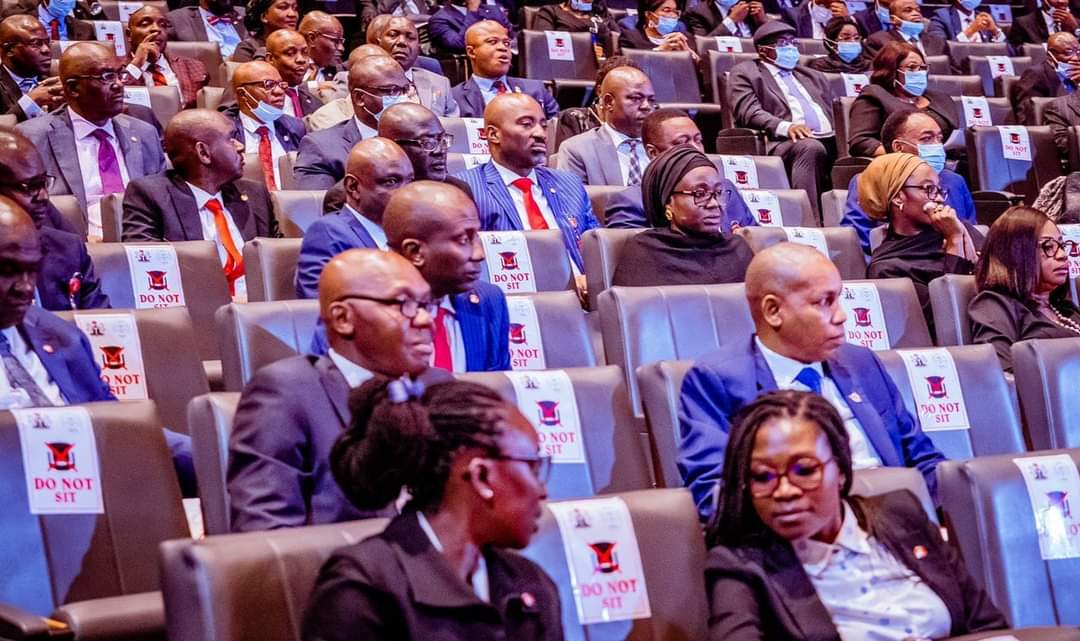Business
Blue Economy Can Attract FDI, If … – Experts

The Customs Area Controller of Kirikiri Lighter Terminal, Comptroller Timinadi Bomodi, has warned that the nation’s blue economy would not attract foreign direct investments (FDIs) without adequate data to guide investors.
Speaking at the 2023 JournalNG Port Industry Town Hall meeting in Lagos, Bomodi said automated processes and technology could be utilised in addressing the dire need for relevant data on various aspects of the sector which makes it easier for investors to understand the terrain.
He identified fishing trawler operations in the country as a sub-sector that requires optimum regulation and adequate data to guide the regulators, operators, government policies and spur Foreign Direct Investments
While stating that the Customs online portal, Nigeria Integrated Customs Information System (NICIS) II, allows for integration of other agencies, he stated that the blue economy should be explored as an ecosystem that leverages technology.
Also speaking at the meeting, Chief Abdullai Tony Dania, a Maritime Lawyer, called for due diligence and enactment of laws that will strengthen integration among government agencies.
According to Dania, there is a need for mandatory inter agencies and inter-ministerial collaboration, supported by statute to give impetus to the required technologically backed integration.
He stated that the Nigerian Customs and Excise is under the Ministry of Finance, but her operations are more under the marine and the blue economy.
Echoing similar sentiments, the Founder of National Association of Government Approved Freight Forwarders (NAGAFF), and Chairman of the occasion, Dr. Boniface Aniebonam, observed that automated processes of port agencies are fragmented.
Aniebonam, who was represented by the Registrar, NAGAFF Academy, Mr. Francis Omotosho observed that even the popular Customs Vehicle Identification Number (VIN) Valuation system and NPA’s electronic truck call-up system are fraught with the challenge of human interference.
The veteran freight forwarder suggested that technology could be utilised to alert Customs of overtime cargoes after 28 days at ports, thereby positioning the Service to expedite the evacuation of such cargoes.
On his part, the Chairman of the Association of Maritime Truck Owners (AMATO), Chief Remi Ogungbemi, advised that already established technological processes should be improved upon.
He also lamented that truck owners are equally being vilified when their trucks are seized along with consignments intercepted by Customs and other security agencies.
Earlier, the Publisher of JournalNG and convener of the conference, Mr. Ismail Aniemu, stated that technology has become part of daily life and automation has also become the norm.
Aniemu said Nigeria Customs Service is the best suitable to be the lead agency for a national single window project and most qualified to handle it with its more robust NICIS II platform.
In similar vein, some experts in the Nigerian maritime sector have advised the Federal Government to deploy the Webb Port model of port community system being used in neighbouring Benin Republic.
Giving an insight into the workings of the Webb Ports in Benin, Lanre Balogun, a Manager in charge of installation at Webb Fontaine Nigeria Limited, said the Port Community System has achieved seamless interactions between systems used by the port authority, customs and terminal operators from data exchange and logistics through billing and payment.
Transport
Automated Points Concession : FAAN Workers Gave 72hrs To Revise Decisions In PH

Transport
FAAN Announces Pick-Up Points for Go-Cashless Cards

Business
Fidelity Bank To Empower Women With Sustainable Entrepreneurship Skills, HAP2.0
-

 News4 days ago
News4 days agoAmend Constitution To Accommodate State Police, Tinubu Tells Senators
-

 Politics4 days ago
Politics4 days agoSenate Urges Tinubu To Sack CAC Boss
-
Business4 days ago
Crisis Response: EU-project Delivers New Vet. Clinic To Katsina Govt.
-
Business4 days ago
President Tinubu Approves Extension Ban On Raw Shea Nut Export
-

 News4 days ago
News4 days agoDisu Takes Over As New IGP …Declares Total War On Corruption, Impunity
-
Business4 days ago
Fidelity Bank To Empower Women With Sustainable Entrepreneurship Skills, HAP2.0
-
Business4 days ago
President Tinubu Extends Raw Shea Nuts Export Ban To 2027
-
Sports4 days ago
NDG: Rivers Coach Appeal To NDDC In Talent Discovery

